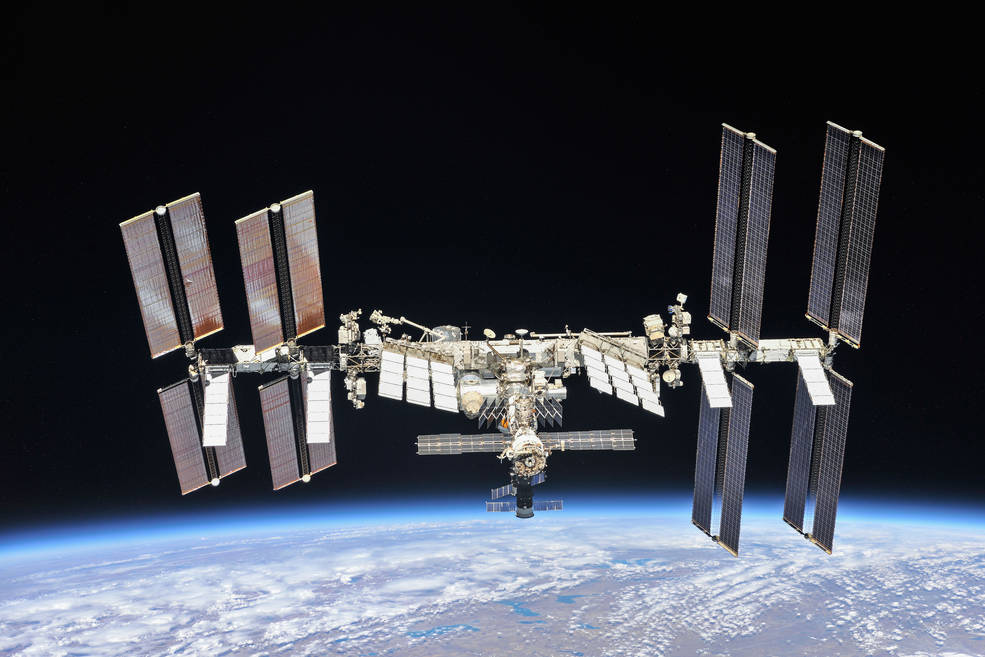US condemns Russia’s anti-satellite test that created thousands of pieces of space debris and put ISS at risk
Russia’s own cosmonauts aboard the ISS were forced to take emergency procedures for safety

Your support helps us to tell the story
From reproductive rights to climate change to Big Tech, The Independent is on the ground when the story is developing. Whether it's investigating the financials of Elon Musk's pro-Trump PAC or producing our latest documentary, 'The A Word', which shines a light on the American women fighting for reproductive rights, we know how important it is to parse out the facts from the messaging.
At such a critical moment in US history, we need reporters on the ground. Your donation allows us to keep sending journalists to speak to both sides of the story.
The Independent is trusted by Americans across the entire political spectrum. And unlike many other quality news outlets, we choose not to lock Americans out of our reporting and analysis with paywalls. We believe quality journalism should be available to everyone, paid for by those who can afford it.
Your support makes all the difference.US officials have condemned Russia’s missile test, which took out one of their own satellites, creating thousands of pieces of space debris and posing a risk to astronauts aboard the International Space Station (ISS).
Soon after the incident on Monday, the ISS Flight Control team was notified of indications of a satellite breakup that may create sufficient debris to pose a conjunction threat to the station.
US secretary of state Antony Blinken took to Twitter on Monday night, condemning Russia’s “reckless” test that created nearly 1,500 pieces of debris floating in low-earth orbit, where the ISS revolves around the Earth.
Due to the floating debris in space, generated by the Russian Anti-Satellite (ASAT) test, astronauts and Russia’s own cosmonauts aboard the ISS were forced to take emergency procedures for safety, NASA said in a press statement.
“With its long and storied history in human spaceflight, it is unthinkable that Russia would endanger not only the American and international partner astronauts on the ISS, but also their own cosmonauts,” NASA administrator Bill Nelson said.
“Like Secretary Blinken, I’m outraged by this irresponsible and destabilising action. Their actions are reckless and dangerous, threatening as well the Chinese space station and the taikonauts on board,” he added.
The US Space Command also issued a statement on the incident, noting that the debris cloud generated by the missile test would have “long-lasting impact to all space-faring nations”.
“The test so far has generated more than 1,500 pieces of trackable orbital debris and will likely generate hundreds of thousands of pieces of smaller orbital debris,” it noted.
The debris will remain in orbit for “years and potentially for decades”, and pose significant risk to the crew on the ISS and other human spaceflight activities, as well as multiple countries’ satellites, the US Space Command said, based on its initial assessment.
“Russia has demonstrated a deliberate disregard for the security, safety, stability, and long-term sustainability of the space domain for all nations,” said US Army General James Dickinson, US Space Command commander. “Space activities underpin our way of life and this kind of behaviour is simply irresponsible.”
Raising concerns that Russia’s counterspace weapon systems undermine strategic stability, he said the country continues to deny access to the use of space by the US and its allies and partners.
US Space Command said it would continue to monitor the trajectory of the debris, adding that it would provide the necessary information to other countries, including Russia and China, to safeguard their on-orbit activities if impacted by the debris cloud.
Leaders from other countries also strongly condemned Russia’s anti-satellite missile test, calling on the country to behave responsibly and not weaponise space.
In 2019, India had conducted a similar ASAT test, which leaders of the world had condemned vehemently.
Join our commenting forum
Join thought-provoking conversations, follow other Independent readers and see their replies
0Comments